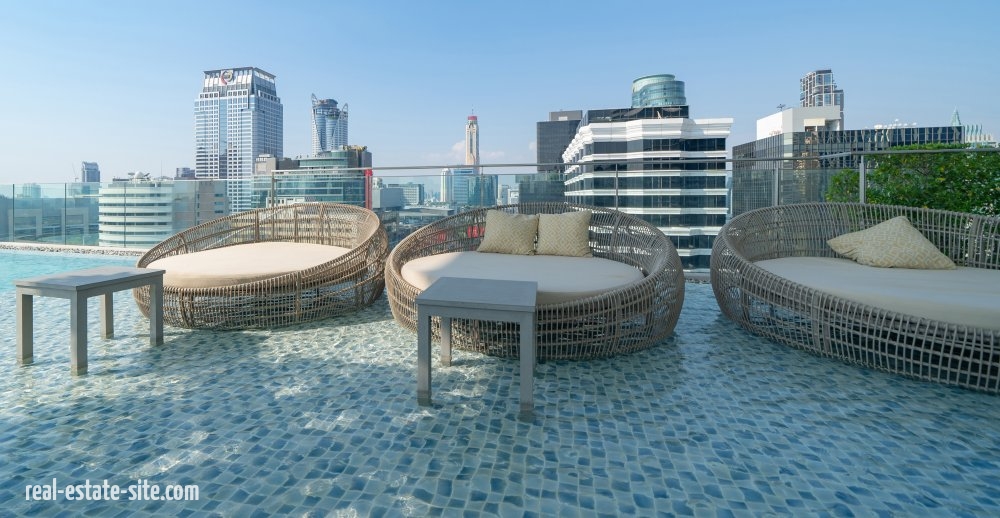Bangkok, the bustling capital city of Thailand, is renowned for its vibrant culture, bustling markets, and rich history. The city has experienced a significant rise in tourism, attracting visitors from around the world. In this article, we will delve into the factors that contribute to the profitability of luxury hotel businesses in Bangkok. We will explore the city’s tourism landscape, analyze the demand for luxury accommodations, discuss the competitive landscape, and highlight key considerations for running a successful luxury hotel in this thriving metropolis.
- Tourism Landscape in Bangkok: Bangkok has become a leading global destination, welcoming millions of tourists each year. The city offers a unique blend of ancient temples, modern skyscrapers, world-class shopping, and vibrant street life. Bangkok’s attractions, such as the Grand Palace, Wat Arun, and the floating markets, contribute to its popularity among international travelers. The city’s well-connected international airport, Suvarnabhumi Airport, further enhances its accessibility, making it a gateway for tourists visiting Thailand and Southeast Asia.
- Demand for Luxury Accommodations: The growing number of affluent travelers and the increasing popularity of luxury travel experiences have fueled the demand for luxury accommodations in Bangkok. Luxury hotels offer premium amenities, personalized services, and a high level of comfort, catering to the discerning needs of affluent guests. Bangkok’s luxury hotel sector attracts both leisure and business travelers, as the city hosts numerous conferences, trade shows, and corporate events. The demand is further bolstered by Bangkok’s reputation as a regional hub for medical tourism.
- Competitive Landscape: Bangkok’s luxury hotel market is highly competitive, with both international hotel chains and local players vying for discerning guests. Renowned hotel brands such as Mandarin Oriental, The Peninsula, and Shangri-La have a presence in Bangkok, offering world-class facilities and renowned service. Local luxury hotel brands like Anantara and Banyan Tree also thrive in the market. Differentiating factors include location, brand reputation, unique offerings, and the ability to provide authentic Thai experiences. Strategic partnerships with tour operators and travel agencies can also enhance a hotel’s visibility and attract a steady stream of guests.
- Operational Considerations: Running a profitable luxury hotel business in Bangkok requires careful attention to various operational aspects. Key considerations include:
- Location: Selecting a prime location that offers convenience, accessibility, and proximity to major attractions and business districts is crucial for attracting guests.
- Exceptional Service: Providing impeccable service and personalized experiences are essential for building guest loyalty and positive word-of-mouth.
- Amenities and Facilities: Luxury hotels must offer a range of premium amenities, such as spacious rooms, fine dining restaurants, state-of-the-art fitness centers, spa facilities, and conference spaces, to meet the expectations of discerning guests.
- Marketing and Branding: Effective marketing strategies, both online and offline, are necessary to create awareness and attract the target audience. A strong brand image and reputation are crucial for standing out in the competitive market.
- Staff Training: Investing in continuous training and development programs for staff ensures that they provide exceptional service and maintain high standards.
- External Factors: Several external factors can influence the profitability of luxury hotel businesses in Bangkok. These include:
- Economic Conditions: Economic stability and growth contribute to increased business and leisure travel, positively impacting the demand for luxury accommodations.
- Political Stability: Political stability fosters investor confidence and tourism growth, attracting more visitors to the city.
- Exchange Rates: Fluctuations in exchange rates can influence the affordability of luxury travel for international guests, impacting their spending power.
- Travel Trends: Staying updated with travel trends, such as the growing demand for sustainable and wellness-focused experiences, allows luxury hotels to cater to changing guest preferences.
The luxury hotel business in Bangkok presents promising opportunities for profitability. The city’s thriving tourism landscape, demand for luxury accommodations, and competitive market create an environment conducive to success. By focusing on strategic location, exceptional service, premium amenities, effective marketing, and attentive operational considerations, luxury hotels can position themselves to attract affluent travelers and capitalize on the city’s tourism growth. However, it is essential to adapt to evolving travel trends and external factors to maintain long-term profitability and sustain a competitive edge in this dynamic market.

